Technology continues to reshape life faster than it has before. The sharp rise of new techs like artificial intelligence, machine learning, the internet of things (IoT), and more is transforming the old ways of doing things.
Today, we’re talking about smart cities, e-governance, healthtech & telemedicine, and a sustainable future not as far-fetched concepts but materializing realities. We haven’t been closer to technology ever before.
The newer generation is actively interacting with technology without even knowing what it was like to live without it.
We’re having video calls, working remotely, seeing a doctor from the comfort of our homes, sending and receiving money in an instant without needing to step inside a bank branch, taking exams online, and doing a lot more using everyday technology that was a dream not long ago.
And there’s one major accelerator of this widespread digital penetration: Mobile.
Had it not been for rapidly advancing telecom services and smartphones, the uptake of technology wouldn’t be as high as it is today. Cellular companies, especially, have had a huge role to play in making technology accessible to all.
By connecting the unconnected and making mobile broadband commonplace, these cellular operators have spearheaded a digital transformation in many developed and developing markets of the world.
In Pakistan, one such player is Telenor Pakistan, the country’s second-largest cellular operator. The company has triggered and advocated digital adoption in Pakistan for many years now. From network transformation efforts to initiatives to reduce the digital divide, Telenor has many industry-first moves to its credit.
The company’s digital interventions in agriculture, social inclusion, insurance, and other key industries have especially been noteworthy.
To discuss this and much more, the ProPakistani team sat with Khurrum Ashfaque, Chief Operating Officer at Telenor Pakistan. From challenges in an increasingly digital world to new trends in emerging technologies, and from the need for being energy-efficient to staying ahead of the innovation curve, we discussed everything at length.
Here’s how our talk with Khurrum Ashfaque went:
1. The digital world is challenging the giants of the telco world. What are the key technical capabilities required by a telco to succeed in the changing face of digital?
For traditional telcos, the disruption enabled by digitization, has been extraordinary. It offers an opportunity to reimagine business systems, rebuild market positions, and create innovative offerings and experiences for customers.
Firstly, by reinventing the core business, we can automate across the value chain and provide a rich omnichannel experience that can serve the customers at any time and across any device: the more digital the journey, the higher the satisfaction.
Secondly, expose capabilities to partners as a service through relevant API enablement. This means transitioning from becoming mere carriers to enablers in the communication supply chain- from providing singular services, to facilitating an ICT ecosystem that could connect diverse businesses (both digital and conventional) to consumers.
Telcos are uniquely qualified to become central negotiators in this exchange economy as owners of the vast amount of data and network infrastructure at their disposal. Similarly, network operators can use analytics to acquire relevant customers, engage them for relevant services, make better marketing-spend decisions, and optimize network design.
All this is protected by a robust information security system to safeguard consumer data across portfolios and leveraging the power of the cloud to meet modern enterprise ICT needs. The cloud-enabled world unlocks new revenue streams for operators. For instance, teaming up with cloud software development companies to create industry-specific solutions for regulated sectors such as financial services.
For Telenor Pakistan, we have experimented across multiple domains and business models, to select areas. Our value propositions offer value for money or ‘more se ziyada’ convenience of paying for apps via mobile balance.
2. How do you see trends in data science, Artificial Intelligence, and Machine Learning working for a telecom service provider?
In an era of advanced digitization and high-speed technological development, such trends are radically reshaping the telecommunication landscape and Telenor Pakistan is no different.
We find ourselves best placed to take advantage of the symbiosis between AI and telco to thrive in a competitive market where automation of key processes is essential. AI has much to offer with the technology already being used from network automation to personalized customer offers.
For Telenor Pakistan, AI/ML’s unmatched ability to process and analyze big data and provide valuable insights has been instrumental in improving the quality of services; insights on how to optimize network maintenance and customer service costs have allowed us to create better-tailored offers for our B2B and B2C customers.
For instance, it has provided us with unsupervised learning on dynamic pricing, digital channel engagement, and customer control based on network load and consumption to balance capacity and customer experience.
3. In view of ongoing energy challenges, how does Telenor Pakistan manage to stay efficient?
As customers, we all want uninterrupted service and coverage. When there is a shortfall in the grid supply, networks face an average of 8 hours per day of grid unavailability, which then must be mitigated through alternate means of energy generation.
Traditionally, diesel fuel and generators have been used to manage energy shortfalls. But the damage is two-fold: one, it inflates the operating cost, with diesel substituting as an inefficient form of energy generation, and two: it leads to high CO2 emissions, gravely depleting our climate.
According to a rough estimate, the telecom industry burns 80 million liters of diesel fuel annually to fill the shortfall of grid supply. While it hampers profitability by a big margin, at least 206,000 tons of carbon emissions are released into the environment as a result of diesel fuel that is used for running the sites.
For Telenor, the future is more communication, less carbon. We believe in not just doing business but doing business, responsibly. We took on the challenge of the grid crisis in the country with an ambition on climate to Go Green.
Being a high insulation country, Pakistan receives about 1KW of solar energy for square meters of its landmass for 6-7 hours on average per day with sunshine hours averaging at 3,000-3,300 per year. In 2011-2012 when the crisis was at its peak with remote areas experiencing up to 18 hours daily grid outages, we introduced a comprehensive energy efficiency program to produce and conserve clean energy.
Today, as a result, we have converted ~17% of our own built sites to renewable energy. This program has paid great dividends enabling us to cut down our diesel consumption by a staggering 65% compared to 2012.
4. Renewable energy is termed the world’s biggest climate victory. What does clean and green energy look like for Telenor?
Renewable energy is a central part of Telenor’s strategy. We are committed to reducing carbon emissions by 50% by 2030. The government of Pakistan’s ambition is to produce 60% energy from clean and renewable sources by 2030. Whilst we are committed to investing in renewable initiatives, favorable policy and regulatory regimes are critical for this scaled-up transformation.
The country has a favorable Renewable Wheeling policy through NEPRA regulations, and Telenor is keen to pursue a renewable wheeling initiative. We are hopeful for the government and authorities to support such initiatives through expedited approvals and permits.
5. Telenor has known to be experimental in its approach, often ahead of the innovation curve e.g. in fintech. How are you applying the same approach to modernizing and upgrading your network?
Telenor is in the business of empowering societies through connectivity. Today, we are perhaps rolling out our biggest modernization effort ever, and as the world evolves, so are we. This includes massively overhauling our operations and raising business standards wherever we operate.
For instance, while still deploying 4G, Telenor Pakistan set its eyes on 5G readiness. For this purpose, Telenor Pakistan deployed the first in the market, a hybrid cloud solution for all our network services. Similarly, we plan to support future 5G services like fixed wireless access (FWA), smart city use cases, and service-based network slicing.
Extremely critical for 5G is a robust cybersecurity infrastructure, and Telenor Pakistan is proud to have deployed state-of-the-art technology in this area.
Given the immense importance of combating climate change, we also have an aggressive energy efficiency program, which involves deploying highly efficient lithium-ion batteries. Our 1000+ towers are already using solar panels to power the equipment.
Furthermore, we are constantly exploring other hybrid energy sources like tower-mounted wind turbines and Biofuel generators. All these efforts have helped us reduced our carbon footprint by 10% over the last year. The trend to modernize our infrastructure, enhance the way we work, and institutionalize our utilization of data to deliver new, relevant services and better customer journeys will continue to be a priority for us.
6. What role has automation played in the journey of a telecom service provider?
Undoubtedly, new technology continues to change the world at an accelerated pace, with disruptive forces such as the Internet of Things, cloud, and 5G bringing new opportunities. At Telenor, we are relentless in driving modernization and doing business responsibly.
That is why a lot of our focus goes into being efficient and digital for our customers. Whether it is the implementation of bot technology enabling 24/7 execution and improving customer experiences, or improving processes and efficiency, our goal is to give better service to the customers.
However, automation of software-related operations such as network management, sales, and billing are only one side of it. The other side is automation for telecom infrastructure like field operations and tower maintenance tasks.
For Telenor, the benefits of automating the infrastructure have ranged from giving us operational efficiency to enhancing customer experience. With the tools available today, it seems that embracing a fully digitalized ecosystem of operations is closer than ever before.
7. The majority of the software service providers in the internet world are moving towards the public cloud. Do you see any future telecom services being provided through the public cloud?
A shift to the public cloud is written on the wall. While the movement is gradual, it will nonetheless happen. Its adoption is dependent on technology evolution, operational changes, and service evolution. For example, the technology evolution of the public cloud is an integral enabler for a more digital telco ecosystem. Operational changes in cloud efficiencies will enable a more collaborative internal process.
And finally, service evolution points at how ready we, the telco operators are, to enhance existing business models, and that remains to be seen. Telcos require low latency and more local use cases or a closer setup will help to establish the exact role that public clouds will play in shaping the telco system.
8. Universal Service Fund (USF) is tasked to partner with telecom companies to provide high-speed internet to communities across Pakistan. How does it work with telcos to achieve this?
Universal Service Fund (USF) is tasked to ensure the benefits of digital connectivity to the people in underserved areas and works solely with the purpose to connect the unconnected.
Recently there have been projects to provide Next Generation Broadband for Sustainable Development, most recently to provide high-speed internet to the people in Chitral, in the valleys around Swat, and new highways in Balochistan.
With Covid-19 highlighting the need for digital connectivity, it can further accelerate the pace of provision of services in underserved lots. Simultaneously, the USF fund can also temporarily subsidize the provision of smartphones till local production catches up with the demand.
9. Over a year now, COVID-19 has fast-tracked digitization, across businesses in the world and Pakistan. How has this shaped Telenor’s digital focus for 2021 and beyond?
Telenor Pakistan has been at the helm of bringing digital connectivity to the people of Pakistan, ever since we launched mobile broadband services in 2014. In addition, we have played a crucial role in bringing digital, financial, and value-added services to our 48 million customers through various platforms.
With a massive current annual throughput of PKR 1.5 trillion and over 8 million active wallet users, Easypaisa has been the foundation stone of the fintech era in Pakistan for the past decade. Since 2020, the pandemic has sped up digitalization; it has delivered on the opportunity that COVID-19 presented to offer more to our customers across our digital focus areas of gaming, content, agri and insurance, and education.
For instance, catering to Pakistan’s largest sector of agriculture, Telenor Pakistan, through its Khushaal Zamindar platform is reaching over 6 million farmers community across the country, offering them support in form of insurance, whilst giving the advice to enhance productivity.
Similarly, Telenor Velocity our program that enables tech start-ups to break new ground in digital products and offerings, has collaborated with the recently launched Easypaisa Open API Gateway. Easypaisa’s Open API Developer Portal, which is now live, allows for seamless third-party integration, enabling partners to integrate 30+ digital payments use cases and testing the processes in a sandbox environment.
We aim to continue leveraging partnerships and the latest technologies to contribute to the Digital Pakistan vision. We are strengthening our presence in gaming and entertainment via partnerships with tech giants like Netflix, Spotify, and Gameloft.
We also introduced the concept of self-service and digital recharge using the MyTelenor App currently being used by 8 million Pakistanis. Telenor Pakistan has helped to develop a digital ecosystem by providing secure and advanced APIs access to multiple digital players like Google, Facebook, and Daraz, that have entered the local market in recent years.
We digitized our core business with a market-first partnership initiative with Facebook that provides 3.9 million Telenor Pakistan Facebook followers the option to directly buy data packs or loans, from the official Telenor Pakistan Facebook page through a ‘Buy Data’ feature.
Telenor Pakistan is also playing a very active role in the B2B domain through hotel management solutions like S-Tel in partnership with Serena Hotels and by leveraging IoT to offer innovative services.
Auxo Fleet, powered by Telenor Pakistan, is a complete end-to-end fleet & asset management solution which uses advanced Telematics to provide valuable insights for businesses. Currently, Auxo Fleet has an active base of over 5,000 vehicles.
10. What is driving your belief in Pakistan’s digital future?
2020 has truly established the significance of digital connectivity as countries responded to the pandemic and need for increased connectivity differently. Macro indicators like data penetration and IT services exports are off to a promising start.
Start-ups such as Ed-Kasa, Patari, Bykea among others have a vibrant future as they are getting noticed. As the government embarks on its Digital Pakistan vision, policy discussions in areas of e-commerce, privacy, and data protection, taxation is happening, and ease of business is improving.
Similarly, investments in fintech have propelled us towards a truly digital economy, serving the most marginalized unbanked segment of our society and helping bridge the digital gender gap. A society like ours with such a young population and increasingly tech-savvy generations ensures a unique role for mobile payment services.
The core of our focus remains to bring more people into the folds of the digital economy, and only by working together, the operators and government can go much further in providing the people of Pakistan a digital society with ease, access to quality services, and opportunities to thrive.
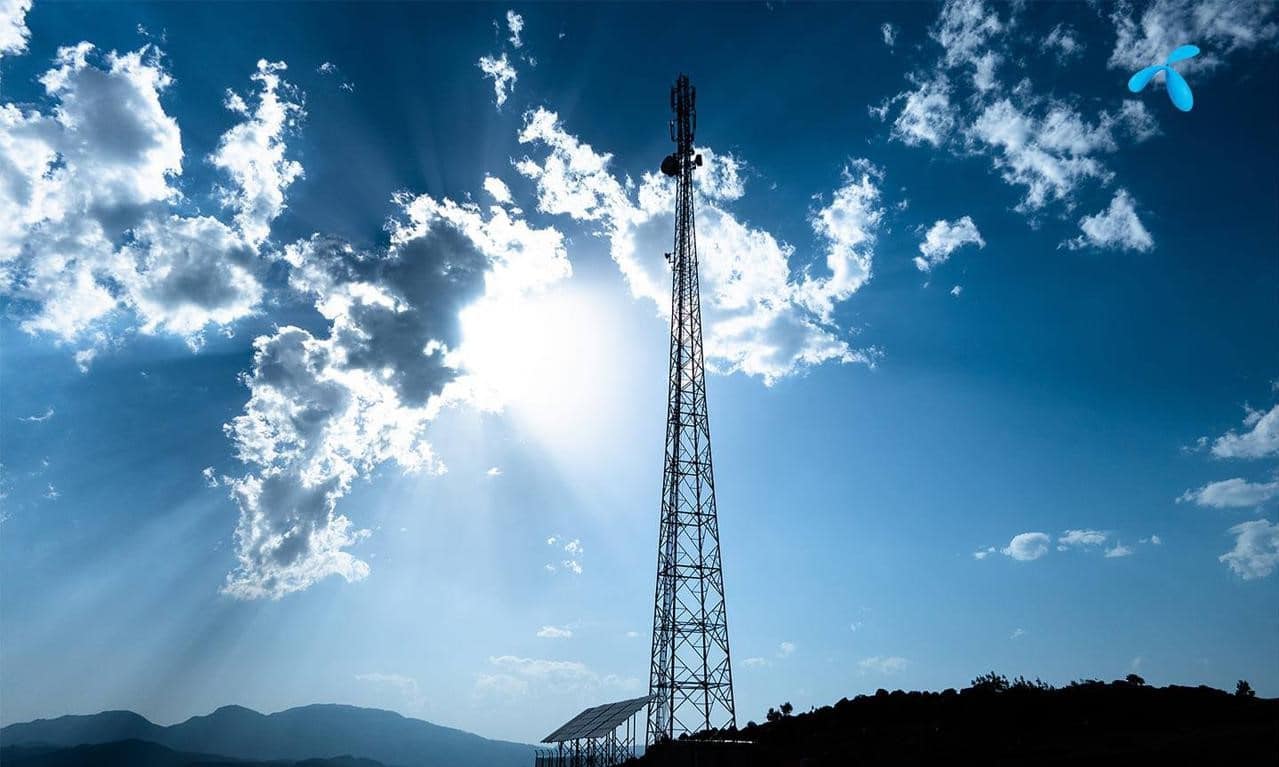
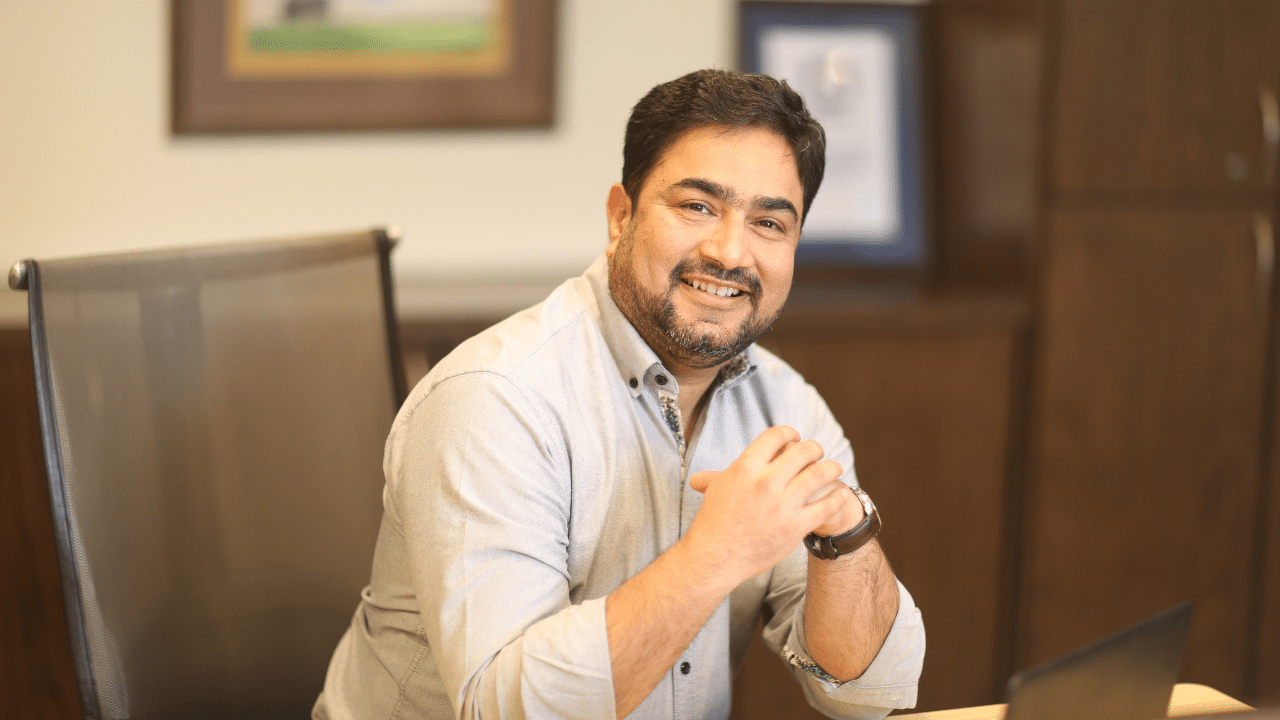
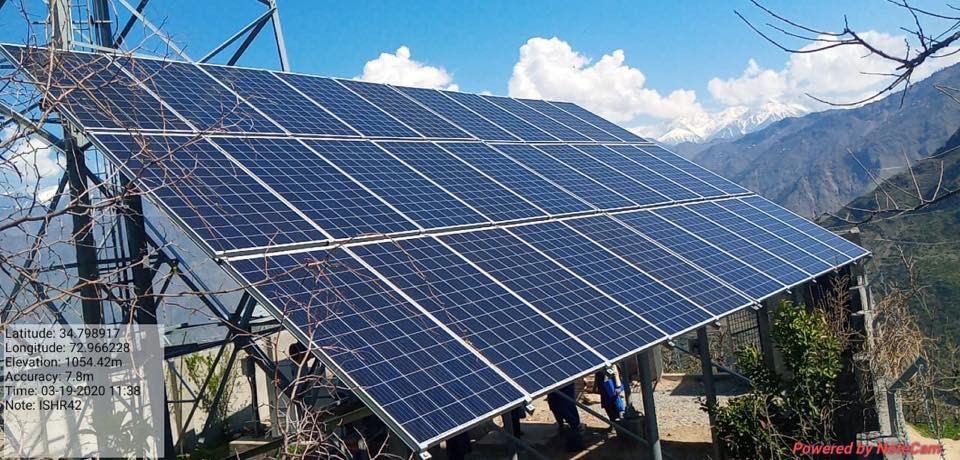
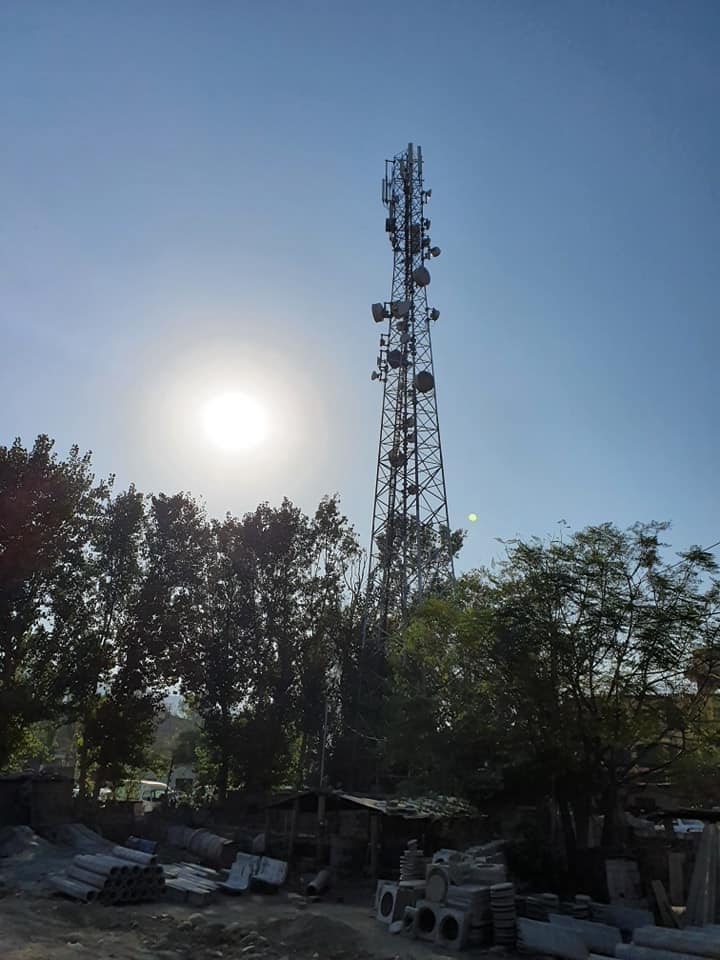
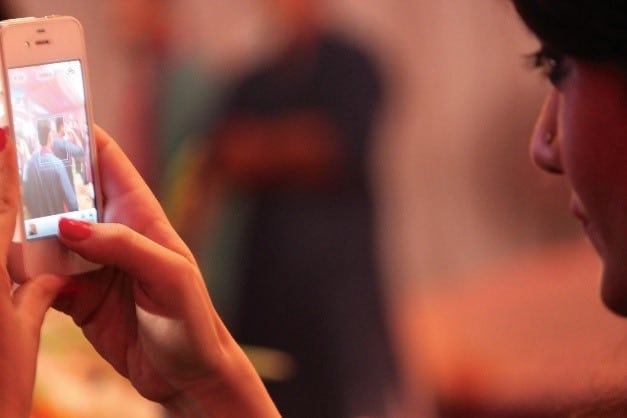





















Pyare Telenor g app ki speed kaby 30 kb se to uper jati nhn to kia digitalisation or modernization